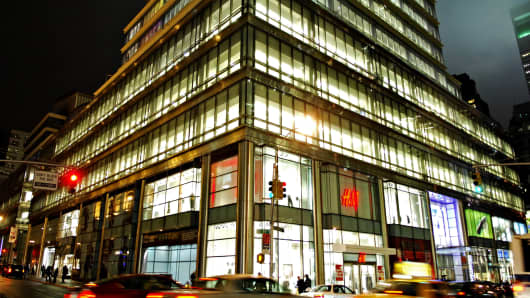According to that former reporter, guards would sometimes patrol the headquarters and ask men to adjust neckties that had flopped over security badges.
Years of becoming habituated to being able to both snoop on fellow employees and being snooped upon may have made the use of proprietary customer data for reporting seem perfectly acceptable.
(Read More: Fed, Treasury Examining Bloomberg)
"They've been doing this to each other for so long that they think its normal," said a different former employee.
This attitude was certainly detectable in a conversation I had with one current employee.
"This is blown way out of proportion by people who just don't understand that nothing you do at work is truly private," the person said.
(Read More: Can Wall Street Live Without Bloomberg?)
To be fair, this person was interviewed prior to Bloomberg Editor-in-Chief Matt Winkler's apologetic editorial. So he may not have known that the company had decided to move hard against this practice.
"This is a very Bloomberg thing to do. Use any data available. Aggressively pursue a story. Combine those two and of course you get snooping," a third former employee said.
"It's absolutely a part of the company ethos, where nothing you do is private there," another former employee said.
Outside the coverage of Wall Street, however, not many workers took advantage of the ability to snoop on customers, former employees said, simply because other industries don't use terminals as heavily.
"If you were covering nonfinancial companies, your subjects didn't have Bloombergs so you didn't care about this sort of thing," the former reporter said.
"I think this practice was confined to the deals team," another former reporter said.
"I don't recall ever using the now-infamous Z and UUID functions on the terminal to check on information about sources. Then again, I wasn't covering Wall Street or investment banks," former Bloomberg reporter Chris Roush of Talking Biz News wrote, referring to two of the terminal functions Bloomberg reporters are said to have used to peak at customer data.
One thing that I heard almost universally from Bloomberg employees—current and former—is a denial of the implication in some stories that Bloomberg's coverage may have been corrupted by the fact that some journalists attended terminal sales meetings.
"Nothing could be further from the truth. The wall between sales and reporters was iron-clad. Bloomberg was serious about its journalistic integrity," one former reporter said.
But attending sales meetings may not be the only way Bloomberg's news gathering is affected by being so closely attached to the terminal business. Two former Bloomberg employees said that the speed with which it turned against its reporters showed that the company's primary focus was terminal sales rather than journalism.
Tunku Varadarajan, a research fellow in journalism at the Hoover Institution at Stanford University and a former editor at Newsweek, agrees.
"What the kerfuffle really does is highlight the ongoing and mismatched turf war between the terminal and the news sides of Bloomberg. The terminal is king; news a lowly jack. Anything that could compromise the terminal is sacrilege (not to mention bad business), which explains why senior executives are so quick to fall on their swords defending the terminal—and to throw news under the bus," Varadarajan said.
So why does Bloomberg foster the culture of surveillance that led to the snooping that has angered its customers?
"It's just part of being data-driven and transparent. Your boss knows everything about you because you are a company resource and we're managing resources efficiently through knowledge," a current employee said.
"It's partly paranoia," a former reporter said. "They said the cameras and the constant badge-checking were to prevent corporate spying."
All the current and former employees I spoke with insisted on anonymity. Current ones said they could not speak on the record for fear of being fired. Former employees cited confidentiality agreements or said their current employers would not authorize them to speak about the Bloomberg situation.
Bloomberg's spokesman did not respond to a request for comment.





